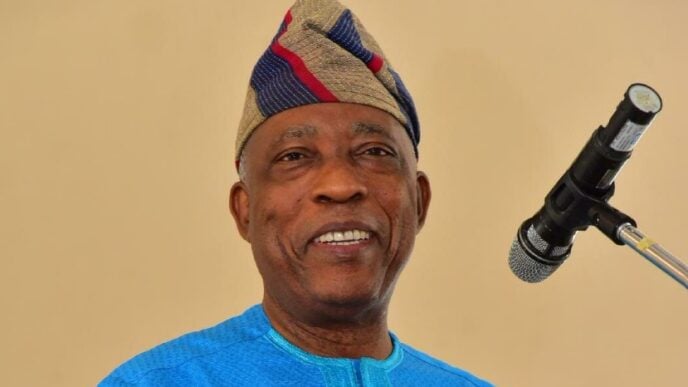When the numbers don’t match what people feel in their wallets, trust in government narrows. The same holds for Nigeria’s digital economy. The sector is booming, but the returns to the government’s purse remain strikingly low. In 2024, the ICT sector contributed 17.64 percent to Nigeria’s real GDP — more than oil and agriculture combined. But in fiscal terms, it’s barely scratching the surface.
This mismatch reflects the growing danger of running a 21st-century economy on 20th-century tax rules. Global digital platforms are making millions off Nigerian users without any corresponding tax contribution. And while the fiscal deficit widens and the debt burden balloons, Nigeria’s digital space remains a low-hanging fruit that the taxman can’t quite reach.
But that must change.
Platforms like Netflix, TikTok, Google, and Meta operate at scale in Nigeria. They reach millions of users, sell targeted ads, host creators, and rake in subscriptions — yet many pay little or no local tax.
Advertisement
Even Apple, with its $391 billion pre-tax earnings globally in 2024 and 2.2 billion active devices, likely sees revenue from Nigerian iPhone users without any physical tax trace onshore.
That’s because Nigeria’s tax system — like many others in the developing world — was designed for the brick-and-mortar age. It relies heavily on physical presence to determine tax jurisdiction. But digital commerce operates in the cloud. Servers sit in Ireland, revenues move through Singapore, and payments are routed offshore before local regulators even notice.
The result? Revenue loss, inequality, and a dangerous precedent that undermines fiscal sovereignty.
Advertisement
WHY IT MATTERS NOW
At 7.9 percent in 2022, Nigeria’s tax-to-GDP ratio is not only one of the lowest in the world — it is also far below Africa’s average of 16 percent. The country’s debt servicing cost jumped from N8.27 trillion in 2024 to N14.32 trillion in 2025, eating up 26 percent of the national budget. Yet the government’s revenue drive continues to overlook the fastest-growing sector of the economy.
That oversight is costly.
A recent report from TaxWatch UK suggests that African countries are losing vast sums due to the absence of local taxation on digital advertising. Nigeria is no exception. While the country introduced VAT on non-resident platforms through the Finance Act 2023, enforcement remains inconsistent. There is no dedicated Digital Services Tax (DST) law. No tailored structure. No real teeth.
Advertisement
And so, while Nigerians hustle daily to meet tax obligations on food, transport, and airtime, multinationals with billion-dollar valuations glide through unscathed.
This is not just about money. It’s about fairness.
Other countries have moved faster. In 2016, India introduced a 6 percent Equalisation Levy on online ad revenues earned by non-resident firms. That levy has since grown in scope and generated nearly $800 million between 2023 and 2025 alone.
Kenya took a simpler route: a 1.5 percent digital services tax on the gross value of digital transactions. South Africa focused on VAT, requiring foreign digital platforms to register and remit taxes once their revenues pass a threshold.
Advertisement
These reforms reflect a clear trend: tax where value is created — and where users live.
The OECD’s Two-Pillar solution adds a global dimension, aiming to redistribute taxing rights based on user location and impose a 15 percent minimum tax rate on big multinationals. While progress is slow, these efforts show that taxing the digital economy is no longer experimental. It is now fiscal common sense.
Advertisement
NIGERIA CAN’T AFFORD TO WAIT
With over 107 million internet users and 150 million active mobile connections, Nigeria has one of Africa’s largest digital consumer bases. Yet the country collects far less than its potential.
Advertisement
The Electronic Money Transfer Levy (EMTL) — introduced to tax electronic transfers — is projected to bring in N230 billion in 2025, up 31 percent from the previous year. But this levy mainly targets financial transactions, not digital content, advertising, or e-commerce platforms.
What’s missing is a coordinated, digital-first tax framework.
Advertisement
A new DST regime should distinguish between global tech giants and local startups. Applying the same tax rate to Netflix and a Nigerian content creator on Selar would be tone-deaf. Innovation must be nurtured, not punished. A tiered approach, based on firm size and revenue footprint, would ensure fairness and support smaller players.
The point is not to overtax the ecosystem. It is to broaden the base, reduce loopholes, and signal seriousness.
WHY WE’RE NOT THERE YET
There are reasons Nigeria hasn’t made the leap — but they are not insurmountable.
First, enforcement is weak. Tracking firms with no physical presence requires new tools: IP address mapping, financial data sharing, algorithmic audits. These are not yet mainstream within the Federal Inland Revenue Service (FIRS), which remains more equipped for traditional corporate taxation.
Second, the legal framework is outdated. Nigeria’s Companies Income Tax Act and VAT laws do not fully address cloud services, app-based revenues, or digital ad sales. Without clear definitions and compliance rules, global firms exploit grey zones.
Third, resistance from multinationals is real. Big Tech often argues against local tax regimes, citing double taxation fears or international trade rules. But countries like India and Kenya have shown that assertiveness can yield results — especially when backed by data and cooperation with other jurisdictions.
Finally, the risk of stifling innovation is legitimate. But it’s also manageable. A regulatory sandbox — as seen in Rwanda and South Africa — could allow startups to grow under relaxed tax rules before transitioning into the formal system.
What’s needed is a balanced but bold approach. And that begins with political will.
A POLICY BLUEPRINT FOR THE DIGITAL AGE
Nigeria can still lead the continent in this space — if it acts quickly and smartly. Here’s what that could look like:
-
Enact a Digital Services Tax Law that defines taxable services — from streaming and digital ads to cloud storage and online marketplaces.
-
Segment tax obligations based on firm size and reach. Big players like Google and Meta should face stricter obligations than a Nigerian SaaS startup.
-
Create a regulatory sandbox where young digital firms can test business models with temporary relief before entering the tax net fully.
-
Modernise FIRS through investment in AI tools, real-time APIs, blockchain auditing, and partnerships with telecoms and payment providers.
-
Sign international agreements that prevent tax base erosion and enable joint audits across countries.
-
Train digital tax officers who understand platform revenue models, cross-border flows, and compliance technology.
This won’t happen overnight. But incremental progress matters. Even a 2 percent increase in Nigeria’s tax-to-GDP ratio would unlock billions in domestic revenue — reducing debt dependence and freeing up funds for infrastructure, education, and health.
FINAL THOUGHTS
Nigeria’s digital economy is not just an engine of innovation — it is a fiscal opportunity. But that opportunity is slipping away.
The question is no longer whether to tax digital platforms. It is how, when, and on what terms. A hands-off approach is no longer viable. As more commerce moves online and global firms deepen their footprint, Nigeria must decide whether to lead or lag behind.
To be clear: this is not about punishing innovation or taxing our way out of every crisis. It is about fairness. It is about recognising that in a society where citizens pay taxes on toothpaste and kerosene, it is unjust for global tech firms to earn millions tax-free.
We must tax value where it is created — and where it is consumed.
This topic formed the basis of my policy paper at the Agora Policy Fellowship, where I explored the prospects, pitfalls, and practical pathways for taxing Nigeria’s digital economy. The conclusion was clear: the longer Nigeria waits, the more revenue — and regulatory leverage — it loses.
If we do not act, we will remain consumers in a digital world governed by others. If we do, we can write our own rules and fund our future.
The time to choose is now.
You can reach Victor Ejechi on X (formerly Twitter) @victorejechi
Views expressed by contributors are strictly personal and not of TheCable.












